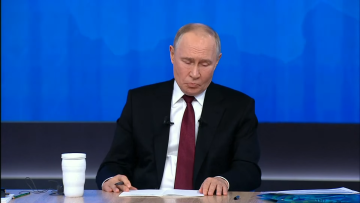The current situation regarding the decline of Assad's regime highlights the vulnerability of the Kremlin, which is becoming increasingly evident.
This was discussed by Alexander Motyl, a professor of political science at Rutgers University, in an interview with The Hill. He stated that Putin's weaknesses are apparent despite his efforts to mask them through manipulation of internal elites. According to Motyl, the Russian president can no longer remain detached from political conflicts.

"Putin pretends to be outside of political disputes, and like every dictator whose power relies on a balance of conflicting elite forces, he pits groups and factions against each other, hoping that their internal struggles will distract them from the source of the system's problems — Putin himself. However, this strategy will only be effective until someone reveals the truth about him, pointing out his actual role in these issues," the expert emphasizes.
However, this strategy is not infinitely effective. "Like any dictator, Putin maintains power by balancing conflicting elites, but sooner or later these internal conflicts will begin to question his direct responsibility for the country," Motyl notes. This reality may now be approaching, and even propaganda television can no longer conceal these internal contradictions.

The expert believes that the wisest course of action for Ukraine, Europe, and the new Trump administration is to be cautious with potential peace agreements that could prolong Putin's regime. He points out that it makes sense to continue supporting Ukraine, to refrain from rushing into agreements, and to wait for further weakening of Russia — economically, militarily, and energetically.
Source: thehill.